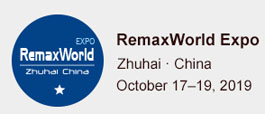Authorities in China have approved the deal between the two companies, meaning it is now officially approved.
The Recycler recently reported that the acquisition of Sharp by Foxconn had gone through “after years of pursuit” in a “reduced buyout”. Previously, Foxconn had reduced its offer “by around” $900 million (€804 million), having initially planned to invest ¥489 billion ($4.3 billion/€3.8 billion) in the struggling OEM, and now planning to lower the price of new share offers.
Sharp confirmed in a release that it had “been informed the examinations by the Anti-Monopoly Bureau of China’s Ministry of Commerce have completed”, meaning that Sharp “hereby announces that all examinations by the competition authorities of the relevant countries have been completed”. The completed deal saw Foxconn acquire a controlling stake in Sharp for ¥389 billion ($3.4 billion/€3 billion), and it will get 66 percent of the OEM for ¥88 ($0.78/€0.69) per share, capping “weeks of drama” as the acquisition stumbled.
The OEM had accepted the buyout, worth $6.2 billion (€5.6 billion), but at the last minute Foxconn halted the acquisition for further talks. According to sources, this was because of “previously undisclosed liabilities”, and needing to clarify “new material information”. Other sources stated that Sharp had “contingent liabilities” worth around $2.7 billion (€2.4 billion), which “contrast[ed] with Foxconn’s own due diligence” that had revealed a much lower amount.
However, the deal was then back on, with Foxconn Chairman Terry Gou travelling to Japan to hold “late-stage talks” with Sharp executives, and “both sides [were] seeking to conclude”. As part of its new scrutiny of Sharp’s operations, Foxconn had “dispatched a team to Sharp’s headquarters, plants and other places”, and apparently “concluded that the contingent liabilities, which could be incurred in the future, do not pose a serious threat”.
Later developments had again seen the deal in the balance, as Foxconn was “seeking guidance” from Sharp on its last quarterly performance as part of efforts to “finalise” the acquisition. Sources noted that “investors [were] on edge about prospects for the deal”, with concerns that it is “dragging out” affecting share prices, but Foxconn was said to be “unlikely to walk away given its deep desire to gain control of Sharp’s advanced screen technology”.
Bloomberg surmised that Foxconn’s total payment “will probably increase”, with the initial agreement laying out that Foxconn would “spend an additional” ¥100 billion ($887 million/€784 million) to “acquire preferred stock from Sharp’s main banks”, though neither company “discussed that transaction” when announcing the deal this week. There is also a clause that allows Foxconn to buy Sharp’s display business “if the deal falls apart anytime before 5 October”.
If that were to happen, Sharp would give Foxconn or a third party “designated” by Foxconn, “exclusive negotiation rights for three months to buy the unit”. Two of the 13 Sharp directors voted against the deal, which was said to be an “unusual sign of protest in consensus-driven Japan”, while Gou commented that “we have much that we want to achieve and I am confident that we will unlock Sharp’s true potential and together reach great heights”.
http://www.therecycler.com/posts/china-approves-sharp-foxconn-deal/

Workers walk outside Hon Hai Group’s Foxconn plant in Shenzhen, Guangdong province, China, on Wednesday, May 26, 2010. Gou said nine of the 11 company workers who either committed suicide or attempted to had worked at the company less than a year, and six had been employed for less than a half-year. Photographer: Qilai Shen/Bloomberg












